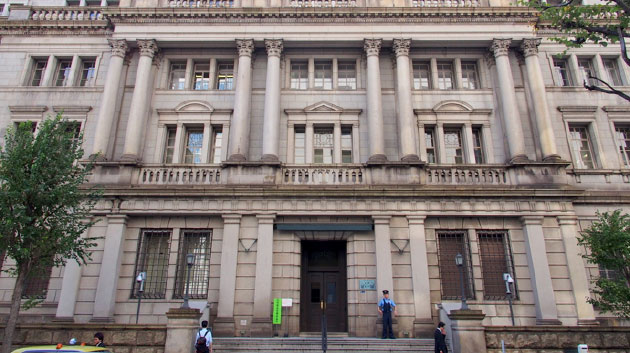The Belt And Road Initiative Spreads
Bank of Japan Resists
Takashi Images / Shutterstock.com
While the trade war continues between the U.S. and China. Meanwhile Japan has started to cooperate with international institutions to wage a finance war on China. They have finally started to move against China’s expansionist ambitions through a plan to provide financial support for Asia and Africa.
China’s Belt and Road Initiative has increased their sphere of influence in the world. The Initiative is President Xi Jinping’s scheme for creating a financial region spanning Asia, Europe and Africa. And in order to do this, he has been advancing infrastructure maintenance projects on seaports, railways and highways in these areas.
But this is in fact a debt trap. Some critics even call it a new form of colonialism. The problem is that, while the countries that have joined the Initiative get the benefit of the infrastructure maintenance by loaning huge sums of money from China, when these aren’t repaid on time, China assumes ownership of the infrastructure.
An Anti-Debt Trap Policy
On seeing this turn of events, the IMF decided to offer a salvage package for countries caught in the trap. In May, the IMF announced that they would be providing $6 billion of financial support in the hope of reducing Pakistan’s burden of $100 billion in foreign debt.
Japan has also decided to offer salvage packages for African countries that could potentially fall into China’s debt trap through sending financial experts to those countries in order to rebuild their government finances.
Japan is also trying to stimulate exports to Africa as a counterstrategy to China’s expansionism. In April, a government-related financial institution announced their plan to create a trade insurance scheme to cover the full cost of damages that Japanese businesses may incur as a result of civil conflicts in Africa.
The ASEAN, along with Japan, China and South Korea, has pledged $1.5 billion in infrastructure development in Asia. The Asian Development Bank (ADB) is leading this initiative in providing loans to businesses that choose to expand into the development-target countries. Japan is a major investor in the ADB and plans to use the scheme to its full advantage, and reinforce infrastructure exports.
A Sino-Japanese Finance War
In February, before this string of events took place, Haruhiko Kuroda’s guardian spirit appeared before Master Ryuho Okawa, founder and CEO of the Happy Science Group. Kuroda is the Governor of the Bank of Japan, and he appeared with a declaration of a finance war against China.
“If I was given the authority to act beyond my position as the Governor of the Bank of Japan, I would really love to fight China’s economy,” he said. “I want to start a finance war with China and completely destroy it.”
Japan’s newest strategy is to financially support developing countries in resistance against China. After his monetary easing strategy, Kuroda is now ready to fire his next bazooka.
Japan Always Out of Sync
But Japan so far has not shown the ability to gather and synchronize global forces for a face-off with China. For example, during his visit to Europe in April, Prime Minister Abe spoke about the importance of freedom, democracy, human rights and the rule of law, and criticized China for infringing upon these values. At the same time, he seems to have a cooperative stance towards the Belt and Road Initiative as long as certain terms are met.
Blocking China’s expansionism is advantageous for Japan. But Governor Kuroda’s bazooka won’t reach China unless Abe changes his stance towards the Belt and Road Initiative.
Japan must clarify their China policy instead of waiting absent-mindedly while the U.S.-China trade war takes place around them. Japan cannot hold a diplomatic friendship with both countries. Abe must not fall into China’s hands and nullify the potential effects of a finance war.



















